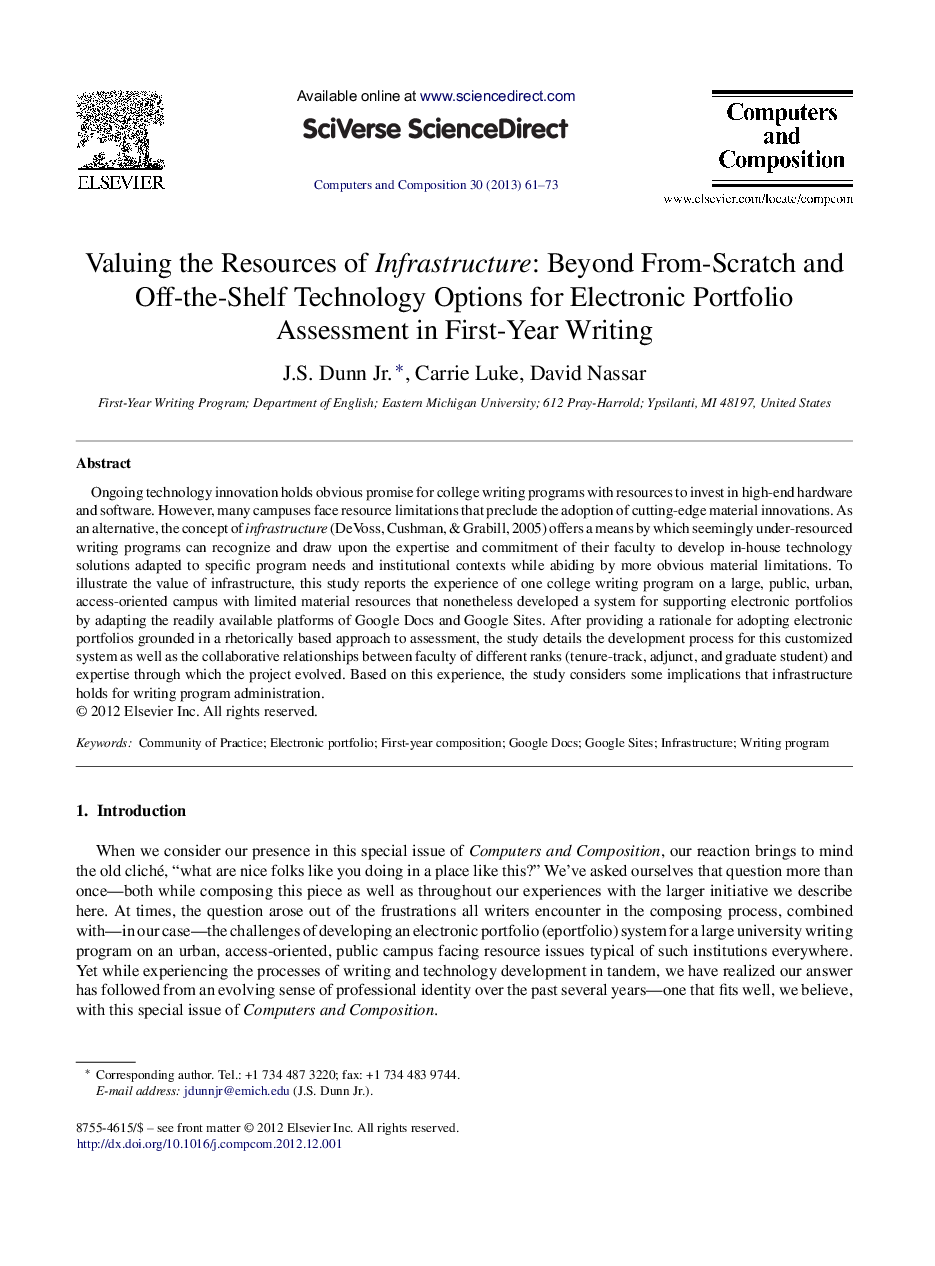| Article ID | Journal | Published Year | Pages | File Type |
|---|---|---|---|---|
| 347790 | Computers and Composition | 2013 | 13 Pages |
Ongoing technology innovation holds obvious promise for college writing programs with resources to invest in high-end hardware and software. However, many campuses face resource limitations that preclude the adoption of cutting-edge material innovations. As an alternative, the concept of infrastructure (DeVoss, Cushman, & Grabill, 2005) offers a means by which seemingly under-resourced writing programs can recognize and draw upon the expertise and commitment of their faculty to develop in-house technology solutions adapted to specific program needs and institutional contexts while abiding by more obvious material limitations. To illustrate the value of infrastructure, this study reports the experience of one college writing program on a large, public, urban, access-oriented campus with limited material resources that nonetheless developed a system for supporting electronic portfolios by adapting the readily available platforms of Google Docs and Google Sites. After providing a rationale for adopting electronic portfolios grounded in a rhetorically based approach to assessment, the study details the development process for this customized system as well as the collaborative relationships between faculty of different ranks (tenure-track, adjunct, and graduate student) and expertise through which the project evolved. Based on this experience, the study considers some implications that infrastructure holds for writing program administration.
► Under-resourced college writing programs face challenges around technology. ► A college writing program's infrastructure includes the expertise of its instructors. ► An in-house system for electronic portfolios illustrates the value of infrastructure. ► Infrastructure has implications for understanding technology within college writing programs.
